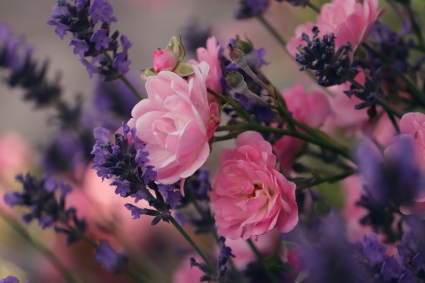Essential oils have been used traditionally by people all over the world since the dawn of time. Like phytotherapy, traces of the use of essential oils can be found as far back as 3000 BC (but a little further west, in Ancient Egypt). (but a little further west, in Ancient Egypt).
To go further, see our article: "How to use essential oils".
Essential oils, an ancestral use
In Ancient Egypt, the antiseptic and odorant properties of essential oils were used in funeral and religious rites. In the form of ointments, they facilitated the passage to the afterlife of embalmed bodies in mummies. In this same period, the spiritual use of oils with aromatic waters is considerable to perfume the body, purify the spirit and purify the habitat.
Subsequently, from the first century AD, in the Indian and Chinese peoples, the use of incense, a perfume obtained by burning different parts of plants, was quickly democratised. Religious practice, driven by the development of Buddhism, allowed for spiritual use.
Meanwhile, all around the Mediterranean basin, the use of plants with essential oils has become more and more common, allowing regular use in the daily life of an ever increasing number of consumers.
Essential oils, a French love story
Aromatherapy has always been a source of curiosity for scientists all over the world, but particularly for France. As early as 1837, Louis Pasteur was interested in the antiseptic properties of essential oils to combat a bacterium: anthrax. This experiment, although not conclusive, made it possible to make essential oils known.
Almost 100 years later, the scientific research of the Frenchman R-M. Gattefossé established the foundations of aromatherapy. His various works validate the use of essential oils to fight infections, inflammations, certain cancerous cells but also to act as an antioxidant in oxidative stress. Through his research on the therapeutic activity and composition of different essential oils, R-M Gattefossé has established that aromatherapy and phytotherapy are compatible and complementary.
Did you know that ?
The chemist R-M. Gattefossé is credited with the invention of the word "aromatherapy" with the publication in 1937 of the eponymous book. This collection of all his publications led to scientific and international recognition of this exceptional natural medicine. His extensive work was motivated by his unfortunate accident: in 1910, in the Lyon region, R-M. was seriously injured following an explosion in the family essential oil factory. He discovered the therapeutic benefits of lavender essential oil on his injuries. He then decided to share his scientific findings with the world.
The French industrial cities, known for the quality of their perfume industry will allow the use of aromatherapy to spread. The most convincing example is the development of aromatic and floral waters, which was greatly developed in the region of Grasse, the Mecca of distillery and perfumery. Perfume plants, and in particular the rose, the emblem of this exceptional region, allow essential oils to be honoured in this region.
Essential oils, a medicine of the future
Hypertension, stress and anxiety, depression, sleep disorders and depression, the latest scientific studies on aromatherapy, particularly those of the last 20 years, aim to demonstrate the interest of using essential oils in the treatment of chronic illnesses well known to the French.
Updated on 24 March 2022 at 20:28







